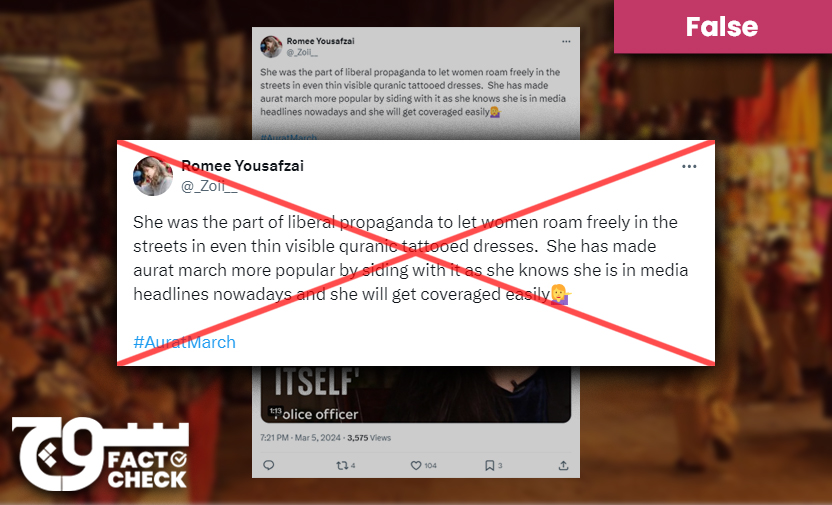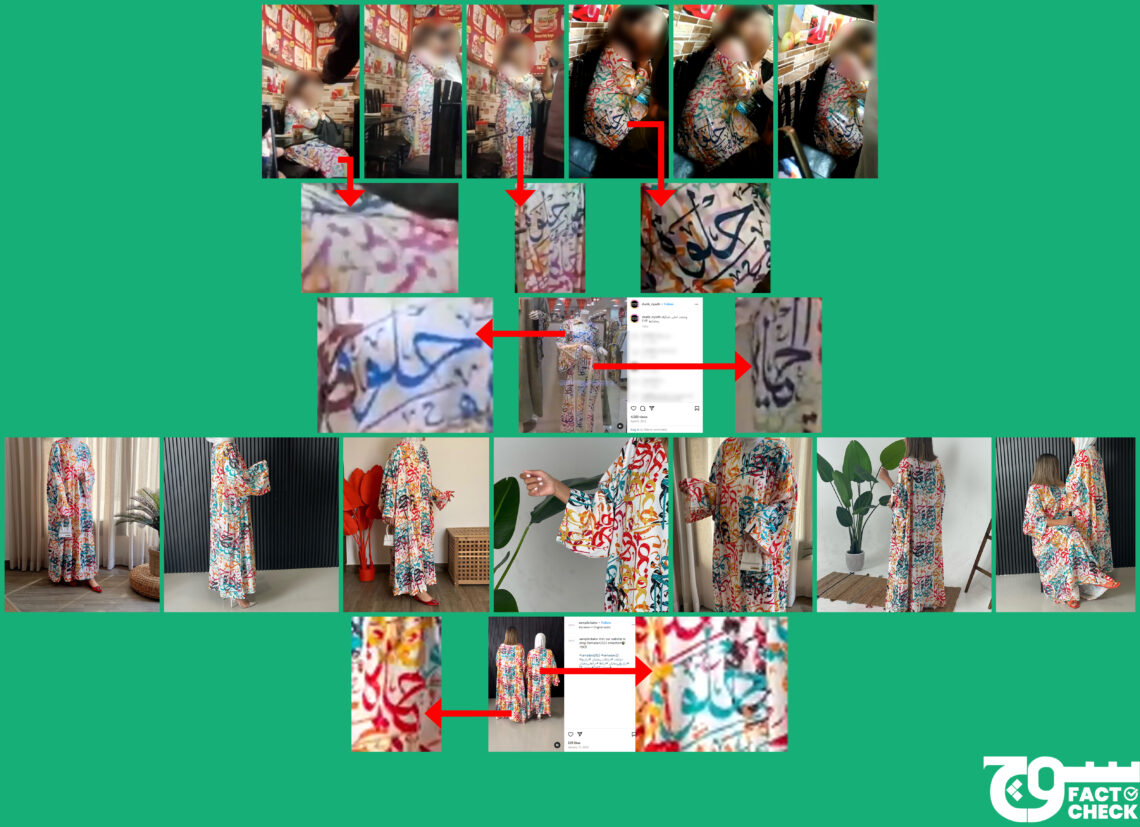
Claim: A woman accused of blasphemy in Lahore’s Ichhra was wearing a dress bearing verses from the Quran.
Fact: The dress of a woman who was accused of blasphemy in Lahore’s Ichhra did not have any Quranic verses or inscriptions printed on it.
On 5 March 2024, X (formerly Twitter) user @_Zoii__ claimed (archive) that a Pakistani police officer who saved a woman from a mob that had falsely accused her of blasphemy had enabled women to wear “thin visible quranic tattooed dresses” by doing so.
@_Zoii__ wrote, “She was the part of liberal propaganda to let women roam freely in the streets in even thin visible quranic tattooed dresses. She has made aurat march more popular by siding with it as she knows she is in media headlines nowadays and she will get coveraged easily💁♀️ #AuratMarch”
The X post was in response to an excerpt from an interview conducted by Sky News journalist Yalda Hakim of Syeda Shehrbano Naqvi — the assistant superintendent of police (ASP) of Lahore’s Gulberg Circle — who rescued (archive) a young woman from a violent mob, which had accused her of committing blasphemy for wearing clothes bearing Arabic calligraphy.
The post also came just a few days ahead of the Aurat March, which is marked on International Women’s Day on 8 March, amid an onslaught of misinformation and disinformation that fuel backlash against the event, jeopardising the lives of participants and those associated with it, as evidenced here, here, and here.
Soch Fact Check has previously debunked numerous claims about Pakistan’s Aurat March here, here, here, here, here, here, here, here, and here.
Fact or Fiction?
Soch Fact Check reached out to Bara’a Al-Ma’any, a fact-checker with the Arab Reporters for Investigative Journalism’s (ARIJ) initiative, the Arab Fact-Checkers Network (AFCN), for assistance in spotting the Arabic words and their translations.
Al-Ma’any said he could identify a word that says “حلوة,” which translates to “sweet”. We asked if there were more words on the dress that were possibly not visible in the video, to which he said, “I found a design that matches the font and phrase on the dress, which says ‘الحياة حلوة,’ or ‘Life is Beautiful/Sweet.’”
The fact-checker also shared some links — here, here, and here (respective archived links here, here, and here) — where the complete calligraphic design can be viewed.
A visual comprising screenshots from the viral video, images of the dress posted on Instagram by Saudi Arabian and Kuwaiti brands Shalek and Semplicita, respectively, and the identification of the words by Al-Ma’any is added below.

Soch Fact Check, therefore, concludes that the dress worn by the woman in Lahore’s Ichhra was not a “visible quranic tattooed dress” as claimed in the viral X post and it did not have any Quranic verses printed on it.
Virality
The post by @_Zoii__ has garnered more than 3,500 views as of writing time.
Conclusion: The dress of a woman who was accused of blasphemy in Lahore’s Ichhra did not have any Quranic verses or inscriptions on it.
Background image in cover photo: LocallyLahore
To appeal against our fact-check, please send an email to appeals@sochfactcheck.com
